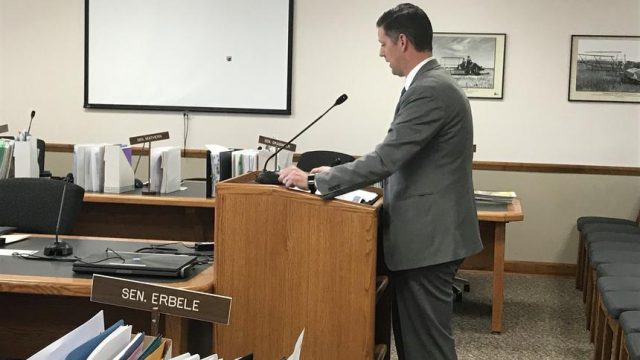Guest Post: Legislature Was Right to Tie the Hands of the Auditor

This guest post was submitted by Roscoe Streyle, a resident of Minot and former state lawmaker.
There has been a big fuss by the State Auditor and some of his minions about legislative action to bring about some semblance of organization and communication with the legislature about doing performance audits. I think a review of the powers granted to the state Auditor is important here, because I think the criticism of the legislature is off base, and frankly made by those that are looking for relevance by using the auditor rather than good governance.
The proposal to amend some of the ND State Auditors powers came from the Legislature. It stemmed directly from concerns about the auditor shifting general fund dollars to his own budget through performance audits. The auditor also sought huge increases in his budget and staff (FTEs)… a power grab. A purely political move meant to spring board him to a higher office in the future, in his mind, it’s a means to an end. Those proposals were soundly rejected by the Legislature. Additionally, there are concerns that the auditor has done away with his Performance Audit Division and has co-mingled that discretionary power with his statutorily required duty to conduct fiscal audits. This raises the question of whether he is adequately staffed and doing his duty as prescribed by law.
[mks_pullquote align=”right” width=”300″ size=”24″ bg_color=”#ffffff” txt_color=”#000000″]Why does the State Auditor think he’s above oversight himself?[/mks_pullquote]
Performance audits aren’t an original power of the auditor, they were granted by the Legislature in the 1990s. The main purpose of the Auditor’s office is to perform fiscal audits, granted at statehood. The Legislature should retain all power on what performance audits are selected and which are not. Performance audits are expensive, time consuming and should be done in my when the Legislature directs. In fact, only 5 of the 175 audits, excluding University System were performance audits according to most recent data.
So why the big fuss? Why does the State Auditor think he’s above oversight himself? CHECKS and BALANCES are good for his accountability too, not just the people he’s auditing.
The LAFRC (Legislative Audit and Fiscal Review Committee) meetings are public, this actually increases transparency and accountability because the public will learn sooner about the concerns that prompt performance audits. The auditor simply has to present the case to the legislative committee on what performance audit he wants to do. In the past the committee has requested the State Auditor do various performance audits of agencies and actually vote on those requests. This is how it should work! This isn’t complicated or controversial and like most things has been blown way out of proportion because of an ego.
So what motivation would the Legislature have for tying his hands? They aren’t exactly friendly to executive branch agencies and are critical of spending. This simply allows them to be even more engaged in that scrutiny…a good thing!
Why isn’t the media reporting on the high turnover rate in the Auditor’s office? Why aren’t they pointing out that he tried to fire his former audit manager last session in his budget? Why not ask how the Auditor miss the $240 million oil funding Bucketgate (State Treasurer Error) despite auditing the Land Board?
The Legislature has ultimate authority over budgets, public policy and oversight. They are simply bringing more transparency to the process, saving money, and holding a government agency accountable, just like the auditor does to those he audits. All positives for taxpayers.




